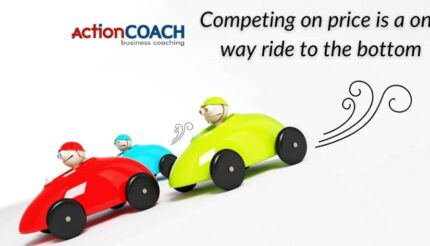Sales is a blend of processes and people skills. In this article, I focus on the people skills side, and discuss what it takes to not just be good, but great at sales.
Sales is very “people-centric.” As the saying goes, “People buy from People”, so to consistently close those deals, you need to work on your soft skills. In this article, I discuss some of the key soft skills used by successful salespeople.
Without EMPATHY, you’re just an order taker
I recently did a poll on LinkedIn, in which I asked people to say what they thought the most important attribute is in a sales role. The top answer that respondents came up with was ‘empathy’.
It couldn’t have been more spot on. In order to be great at sales, you need to be able to empathise with your customer, understand what their needs are, and anticipate how they feel about your service or product.
As I mentioned before, “People buy from People.” When you yourself are buying something, you feel better about the purchase if you can talk at ease with the salesperson, and trust that they understand what will best suit your requirements. The product or service becomes secondary to the person you are buying from, as long as you are building a rapport.
The prerequisite to empathy and rapport is listening. It’s a vital component to any sale. If you feel like you are not being listened to when deciding on your purchase, then you will simply go somewhere else to buy. So that brings us to the next key soft skill…
Are you LISTENING? Blah Blah Blah
Listening sounds easy, right? But active or reflective listening takes practice. Many people actually listen to answer. This is when you think you are listening, but really what you are doing is formulating a response in your mind, and probably missing key points of what the other person is saying. If you want the customer to believe that you are on their side, and feel good about this exchange, then you just have to actually listen to them properly.
So, how are you going to get the customer talking? Well, to be a great salesperson you must be naturally inquisitive, and able to ask probing questions that help you get to the root of what customers need, what they believe and what concerns them. These are the answers that are key to reflective listening. They enable you to relay back to the customer that you have fully understood what’s important to them. Armed with this knowledge you will build trust with your customer, and help them to arrive at a solution. This will lead to a sale for you!
Are you EMOTIONALLY INTELLIGENT?
If you are, then people will naturally want to follow your guidance. There are four key abilities to harnessing emotional intelligence:
-
Perceiving emotions – the ability to detect and decipher emotions in faces, pictures, voices, etc., including your own emotions. This is the most basic aspect of emotional intelligence and it makes all other processing of emotional information possible.
-
Using emotions – the ability to harness emotions to facilitate various cognitive activities, such as thinking and problem-solving. An emotionally intelligent person can capitalize fully upon changing moods in order to best fit the task at hand.
-
Understanding emotions – the ability to comprehend emotion language and to appreciate complicated relationships among emotions (and be able to describe how emotions evolve over time).
-
Managing emotions – the ability to regulate emotions in both ourselves and in others. Therefore, the emotionally intelligent person can harness emotions, even negative ones, and manage them to achieve intended goals.
As you can see, being emotionally intelligent is an incredibly valuable soft skill to have both in your sales career, and in your personal life. If you’re able to pick up on your customer’s mood, you’ll be able to gauge how to proceed with conversations.
- Are they in a great mood? Maybe it’s time to close the deal.
- Are they in a not-so-great mood? Ask them if everything is ok, and listen to what they have to say.
So now you have some key soft skills to work on, are you ready to take your selling skills to the next level, and become really great at sales?
If you would like any advice on developing the skills needed to be a GREAT salesperson, for yourself or your team, then please get in touch.





